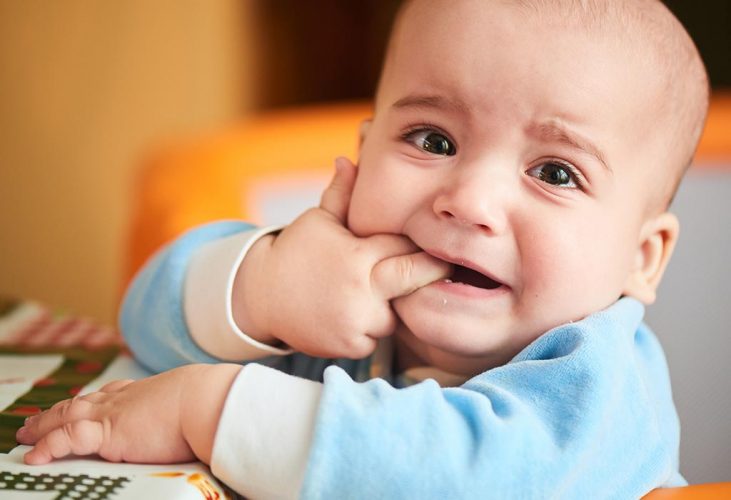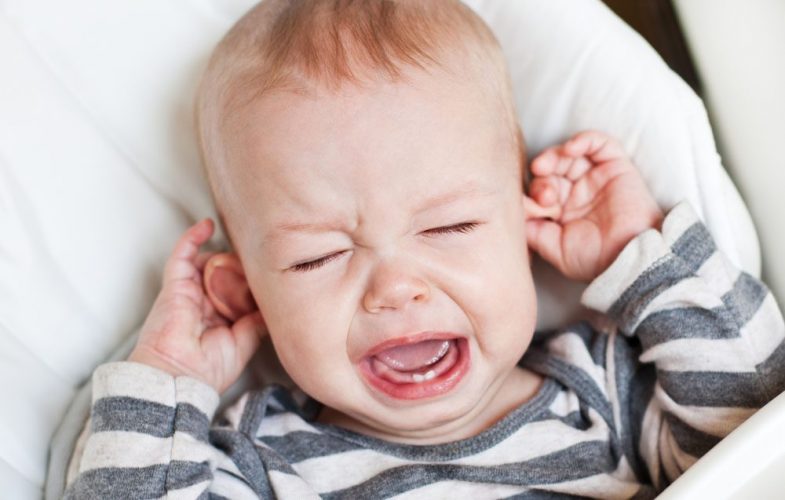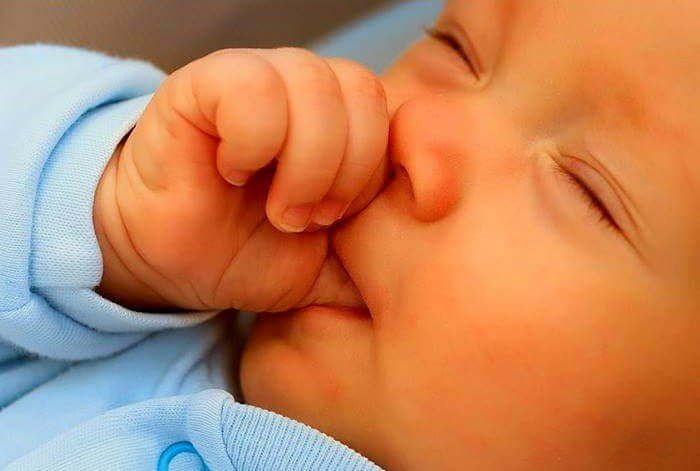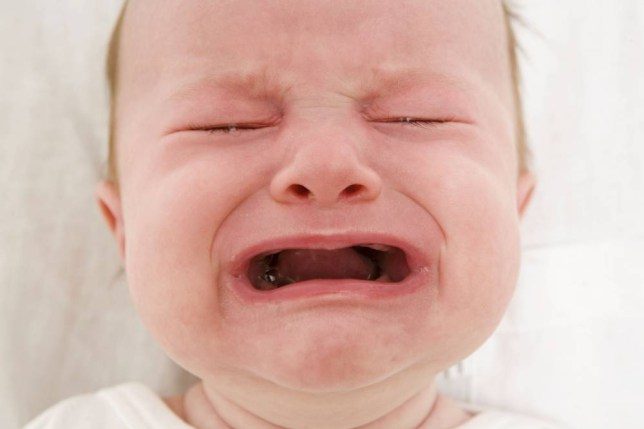Teething in toddlers is not the same as teething in babies. Since teething is a continuous process, it does not just stop after infancy. The symptoms, however, need to be dealt with differently.
Twenty primary teeth will erupt in your toddler by the time he is three years old. After the upper second molars, emergence of their primary teeth is complete.
Teething Order In Toddlers:
AGE TEETH
10-16 months Lower lateral incisors
9-13 months Upper lateral incisors
17-23 months Lower canines
16-22 months Upper canines
23-31 months Lower second molars
25-33 months Upper second molars
What Are The Symptoms Of Teething In Toddlers?

Irritability:
The initial signs of teething are that the toddler becomes more fussy than usual and starts throwing temper tantrums because of mood swings.
Irritation in the gums:
Gums would remain sore and so toddlers will let you know about pain and irritation in the gums.

Trouble sleeping:
If a toddler is teething, he will have trouble in falling asleep and eve have some nights of unsound sleep. This is because they have pain in their gums and irritation.
Drooling:
Babies drool a lot during their teething but even toddlers are used to drooling.
Rash around the mouth:
Because of the drool and mucus, your toddler may develop rashes around their mouth.

Sucking finger:
Toddlers suck on their thumb or fingers while teething because it helps soothe the sore gums during teething.
Biting:
If you see your toddler biting objects like plastic spoons or soft toys, then you can be sure they are teething.
Teething pain varies among toddlers and the pain lasts only before the tooth erupts from the gum and afterwards, it subsides.
How To Ease Teething Pain In Toddlers?

Use teething rings and toys: There are many teething rings available in the market and your toddler can chew on these. Ensure that you buy the one’s appropriate for your toddler’s age so it is not a choking hazard. Wash the teething ring regularly so it does not accumulate bacteria.
Massage the gums:
After washing your hands properly, you can massage the sore gums of your toddler as it does provide teething pain relief.
Cool liquids:
Give your toddler some cold water in a sippy cup to drink. Ensure that the water is not ice-cold and does not numb your toddler’s mouth.
Pain medication:
If the toddler is extremely uncomfortable, you can consult a doctor and only if he suggests, then you can give some pain medication to your kid. Keep medicine as a last resort.
What Not To Use For Toddler’s Teething Pain?
Do not use a teething necklace or frozen teething rings. Avoid using numbing gels or homeopathic creams.


[…] and therefore need to be dealt with seriously. Here we are going to discuss with you some of the most common dental problems that kids face and helpful tips to deal with these […]